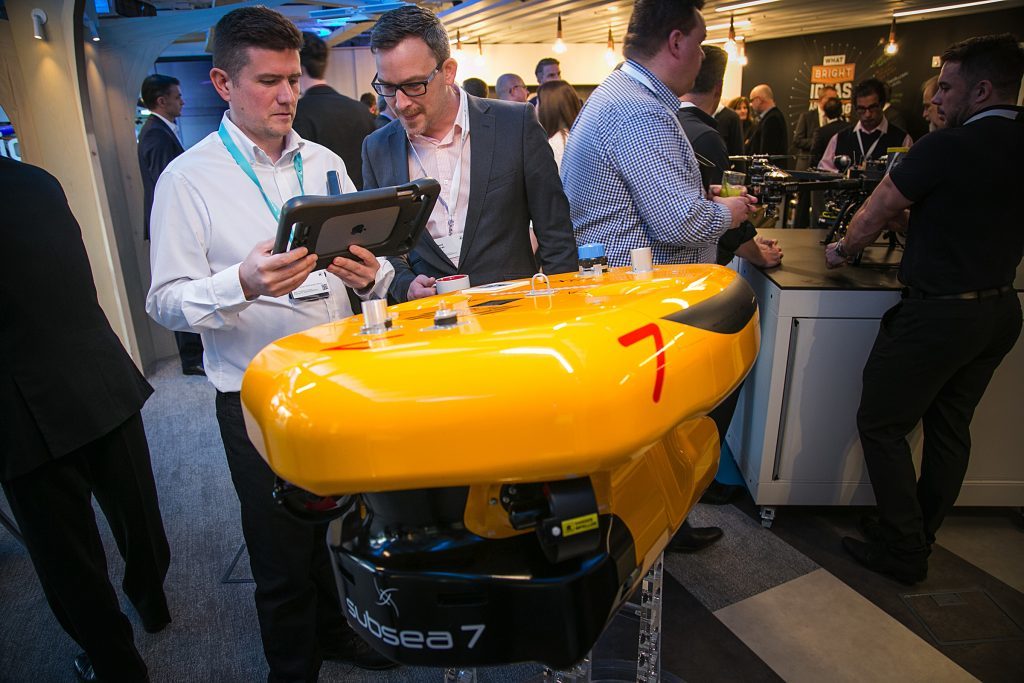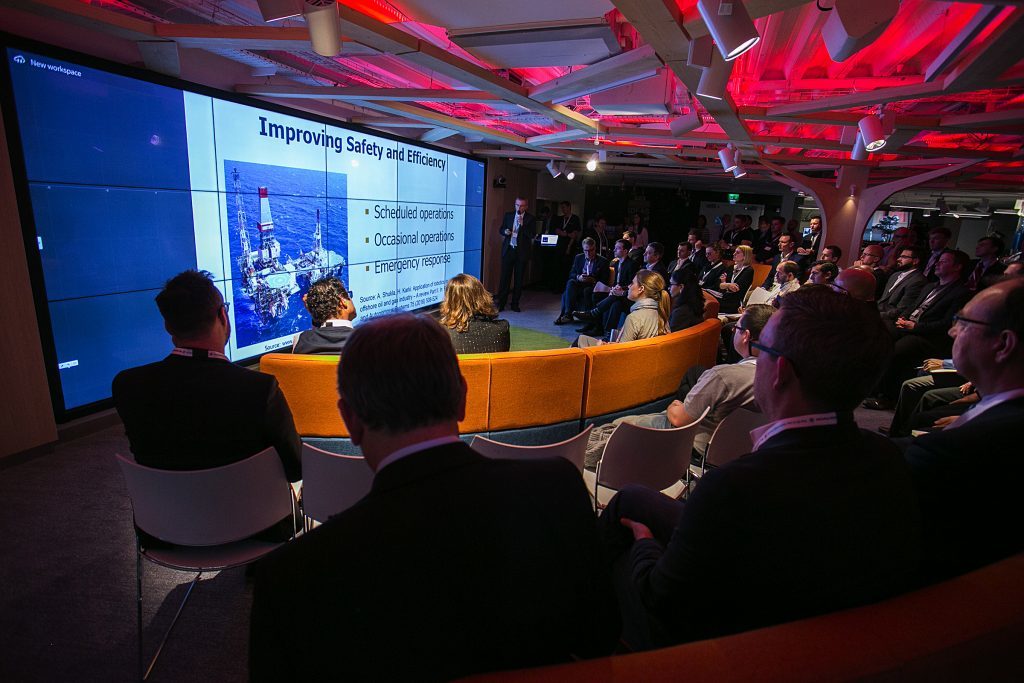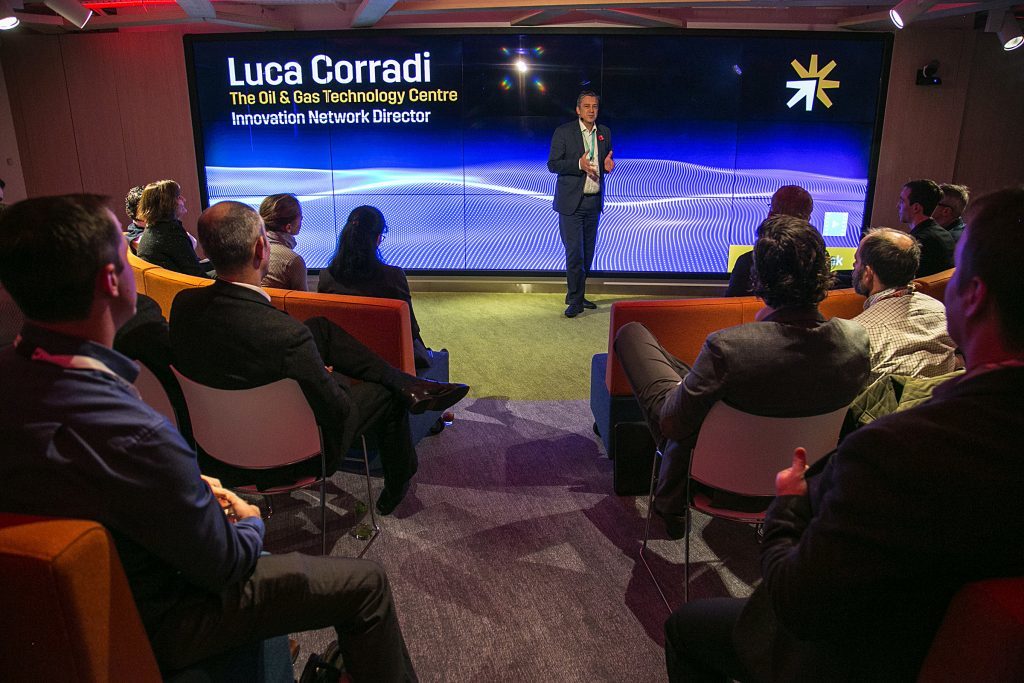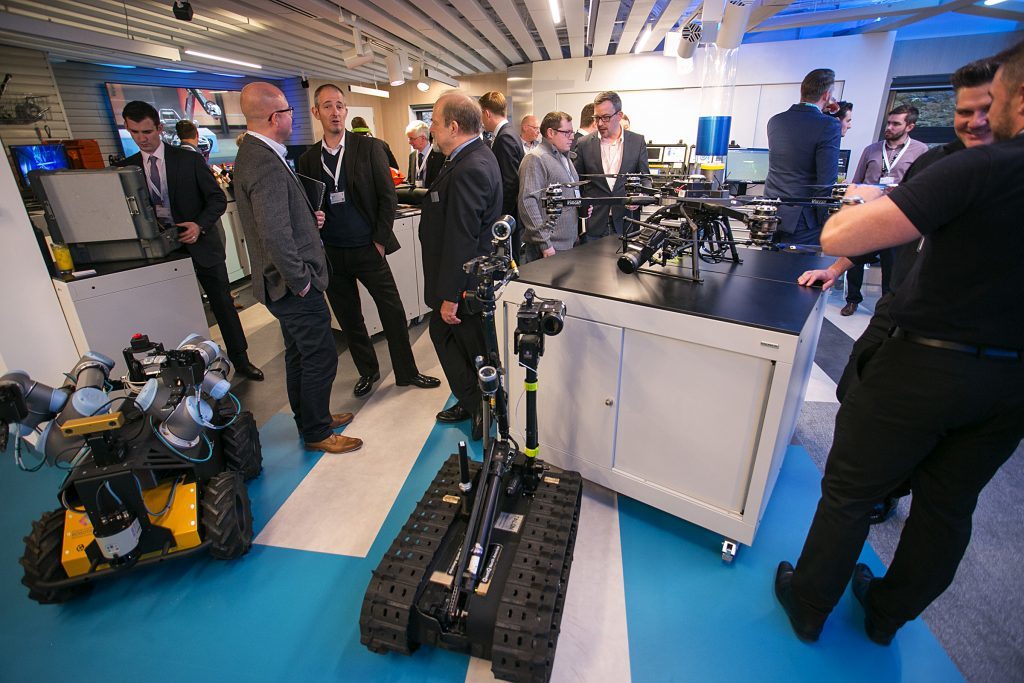
The influence of robotics on the oil and gas sector is “limitless”, according to an industry expert.
Rebecca Allison, Oil and Gas Technology Centre (OGTC) asset integrity solution centre manager, said that she believes robots will grow to be a common denominator in the sector.
It comes as the OGTC’s inaugural Robotics Week pairs experts from the oil and gas sector with experts from the robotics field.
By sharing skills from the different sectors, experts will examine what jobs they want robots to perform offshore in future.
During her opening speech, Ms Allison claimed that robots will be able to perform an array of functions in the industry’s future to ‘extend asset life’ offshore.
The OGTC is currently in the review process of whittling down 29 applicants from their £1million call to ideas regarding enhancing pressure vessel and tank inspection using robotics’ in the North Sea.
Ms Allison said: “The main benefit from this [call to ideas] is safety and production efficiency. Non-intrusive, removing vessels from the shutdown critical path but we’ve also looked at going into them as well, we’ve looked at confined space entry –to get robots inside to stop people having to go inside.”
Asked whether offshore workers should be concerned about losing their jobs to automation in the near future, Ms Allison told Energy Voice: “There’s always going to be that concern, but at the same time we send our friends and families offshore and it is dangerous, and it is dirty. “
The sector skills base could shift from “doing the task” to “finding the task”, the OGTC expert said.
“We can change that skill base so they’re more onshore based and they have different skills and they’re working with the robotics people. So that they’re not doing the tasks but they’re helping to find the task. It’s not about replacing a person. It’s about giving them a different option and a different skill base to secure a job for the future,” he added.
“We have a skills gap at the moment and we’ve got to figure out how we bring that future generation in. Traditional engineering isn’t being considered by the next generation in the same way, but if you ask them to do robotics with computer sciences as an engineering type discipline then they’re interested.”
Allison shared the stage with experts in the robotics field such as David Lane, Heriot Watt University professor and Founding Director in the Edinburgh Centre for Robotics, professor at the Department of Computer Science Technische Universität Darmstadt and William Jackson a research student in advanced remote visual inspection at the University of Strathclyde.
Innovation network director, Luca Corradi, told Energy Voice: “This is about how do we take technologies from other industries, from areas not in oil and gas? Oil and gas has been cautious in the past. We need to look at what is possible and encourage that, see what other industries have been doing and learn from that. What solutions can we bring from robotics in the short term to fix the challenges that we have today and to design the industry of tomorrow.
“I think the future will be heavily autonomous, especially in subsea. That’s what this week is all about. Bring together the experts of the oil and gas sector who know what the problems are and where we start – to find a robotic solution to an industry challenge.”



